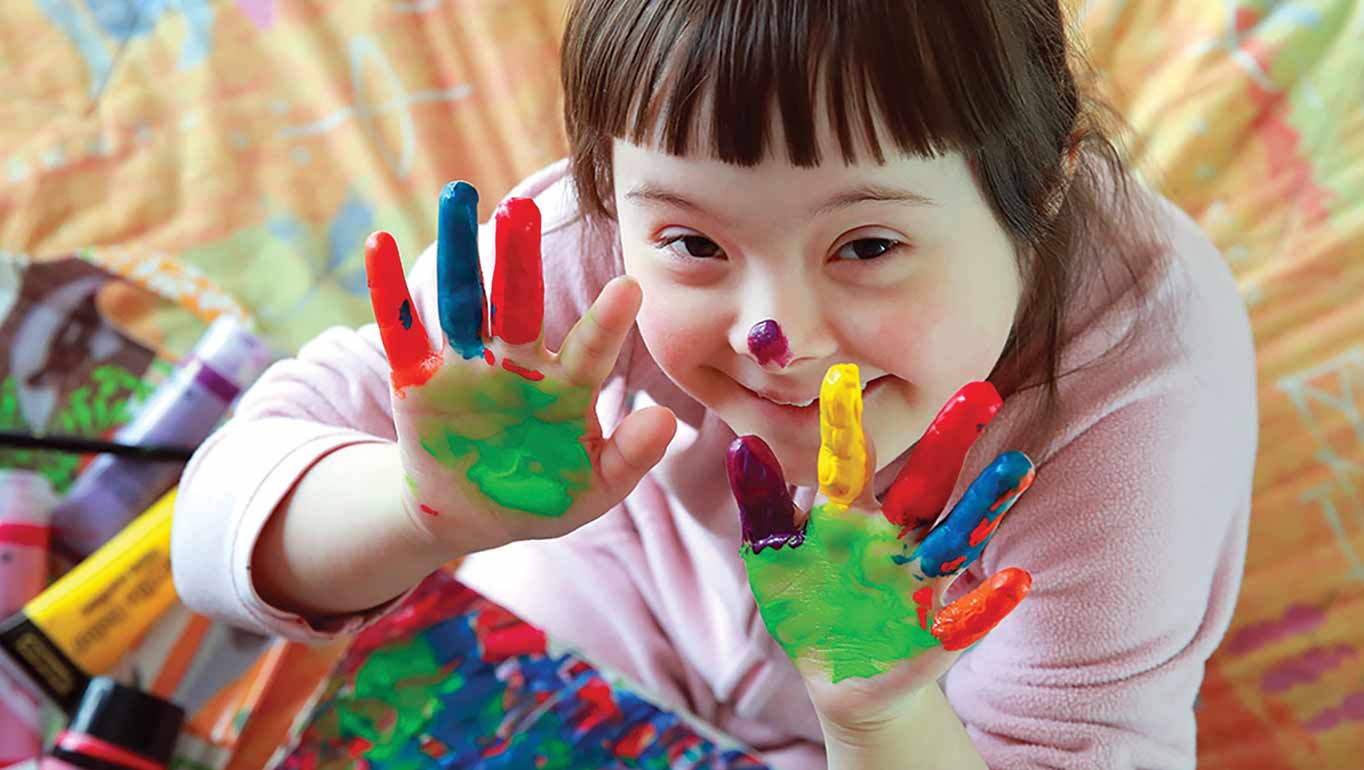Most of us are familiar with our entitlements as parents at the UN, but what if our child requires specialist medical or educational support? Some children need additional care to support their physical, socio-emotional and cognitive development. How inclusive is our culture and practice at the UN to support them and their parents?
This article is the fifth episode of the series called “Parents’ Voices.” In this episode, parents share their stories of raising children with disabilities or special needs, and their experiences balancing parenthood with work in the UN. We hope that their stories resonate with policymakers and those who can change things for the better.
Anonymous, mother of one
“This week my son got his first invitation to a classmate’s birthday party. I cried! It’s the kind of thing that parents of autistic kids will understand. It is so hard to deal with the lack of understanding and acceptance in general. We try to be a shield and a champion for our kids, every single day.
With all the emotional roller coasters that we have been on, the last thing we thought we would have to deal with was a lack of support and respect from our UN employers. When we applied for extra health insurance to cover 20% of our overwhelming medical bills, our son was denied coverage due to his medical condition, and when we approached HR with specific questions or asking for help, we were sent the link to the often-outdated staff manual.
To add insult to injury, we also experienced a lack of understanding from management. We heard things like: “but everyone has problems,” or “sure, it’s okay to attend this important doctor’s appointment, but if you think you need more time off maybe you should consider going part-time” and “but your son seems to be sick all the time, what about the review of the report I sent you last night (that was sitting on my desk for almost a month)?” The list is long. We feel like we are being hit left, right and center, and we don’t think we will be able to continue working like this…”
Anonymous, father of one
“My child was about three months old when we noticed something was not right with his eyes, as he was not following any movement; at first we thought, let’s not jump to any conclusions, but deeply, we were panicking.
I had already taken off the four weeks of paternity leave the UN allows me to, plus a few days of annual leave to supplement its shortness. I was already frustrated to have been made to assume less responsibility for our child than my wife. On the one hand, I was worried about my child, and on the other, about how I was going to ask for more time off from my organization, which was already frustrated with me taking my entitled leave; after all, “I was a man, and childcare was not really supposed to be my job,” my boss had implied earlier…
I felt I couldn’t breathe, I knew there would probably be a long way to diagnosis and a challenging future ahead for my child and us as a family. But I also knew that I was alone in this, I couldn’t ask for any help from my organization. I got used to my child’s disability, but that lack of empathy and support from my entity continues to hurt to this day…”
Carolina Jara Gonzalez, Division for Gender Affairs, CEPAL
“My story begins on 24 August 2018, when I gave birth to my son Carlos, who has Down Syndrome.
From the moment he was born, a spiral of treatments began: early stimulation therapies, visits to different specialists, speech therapy, kinesiology treatments, and regular examinations. As parents, we do everything we can to be able to balance work responsibilities with Carlos’ day-to-day care, which can be costly. I am tremendously grateful to benefit from Disability and Special Education Grant (1), which has enabled us to enroll Carlos in a specialist school supporting his integral development.
I also have words of thanks to my direct supervisor, who has been able to empathize with my current situation beyond the ECLAC guidelines. There is currently no accompanying policy for this type of situation for the staff. Usually, in my duty station, Chile, mothers of babies born with Down Syndrome are entitled to one year of maternity leave, but in my case, at the end of my UN maternity leave of 16 weeks, I had to use my vacation days to be with my son. In the event that he suffers from a disease (his condition predisposes him to have exaggerated reactions to various diseases), I am not entitled to time off to accompany and care for him under the current staff policy. The return to office-based working has also been difficult due to a lack of instructions and guidance for exceptional cases like mine.
I hope that the UN will begin to empathize with other realities beyond monetary aid and that I will be able to have a healthy balance between my work obligations and the care of my child.”
Our “Parents’ voices” series serves the needs of parents who wish for their voice to be heard. We at U.N. Parents propose to build a bridge between staff and policymakers, and to serve as a constructive platform for change. We advocate for a cultural shift within the system that would balance staff needs and those of the Organization. With that aim in mind, we crafted a plan made of 15 recommendations. Let’s start the conversation.
(1) At the UN, the Special Education Grant is available for parents of children with disabilities, and the Special Dependency Allowance is an additional dependency allowance for staff members who have children with a physical or mental disability, which is either permanent or expected to be of a long duration.



